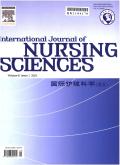揭示新毕业护士在夜班中遇到的挑战:描述性定性研究
IF 3.1
3区 医学
Q1 NURSING
引用次数: 0
摘要
目的刚毕业的护士开始值夜班时,正处于更容易受到现实冲击的阶段,这加剧了这些毕业生所面临的挑战。因此,本研究旨在确定刚毕业的护士在上夜班时遇到的挑战,以帮助确定支持他们适应夜班的策略。从 2021 年 11 月至 2022 年 3 月,在日本西南部地区的四家综合医院中,通过目的性抽样方法选取了 15 名刚毕业的护士参与研究。采用主题分析法对半结构式访谈进行了分析。结果分析揭示了五个中心主题和九个次主题:任务效率方面的挑战(任务组织方面的挑战、时间有限的任务执行方面的挑战)、应对患者病情变化方面的挑战(应对患者不规则病情方面的挑战、应对患者夜间行为变化方面的挑战)、独立实践方面的挑战(从事独立护理实践方面的挑战、处理突发事件方面的挑战)、建立合作关系方面的挑战(与其他员工密切合作方面的挑战、在资源有限的夜班期间建立合作关系方面的挑战)、适应轮班工作方面的挑战(管理轮班工作的物质条件方面的挑战)。结论刚毕业的护士在过渡期执行任务时经常会遇到挑战。在上夜班时,他们还面临着夜班特有的额外障碍。研究结果表明,这些毕业生有必要做好夜班工作的准备,以有效地应对夜班工作的内在要求。本文章由计算机程序翻译,如有差异,请以英文原文为准。
Unveiling the challenges encountered by newly graduated nurses during night shifts: A descriptive qualitative study
Objectives
Newly graduated nurses commence night shifts during a phase of heightened vulnerability to reality shock, exacerbating the challenges faced by these graduates. Therefore, this study aimed to identify the challenges experienced by newly graduated nurses when undertaking night shifts in order to help identify a strategy for supporting their adaptation to these shifts.
Methods
Semi-structured personal interviews were used to collect data. Fifteen newly graduated nurses were selected to participate in the study by purposive sampling method from November 2021 to March 2022 in one of four general hospitals situated in the southwestern region of Japan. Semi-structured interviews were analyzed by using thematic analysis.
Results
The analysis revealed five central themes and nine subthemes: challenges in task efficiency (task organization challenges, challenges in time-constrained task performance), challenges in responding to patients’ changing conditions (challenges in responding to patients’ irregular conditions, challenges in responding to nighttime changes in patients’ behaviors), challenges in independent practice (challenges in engaging in independent nursing practice, challenges in dealing with unexpected events), challenges in establishing collaborative relationships (challenges in working closely with other staff, challenges in establishing collaborative relationships during night shifts with limited resources), challenges in adapting to shift work (challenges in managing physical conditions for shift work).
Conclusions
Newly graduated nurses often encounter challenges in performing their tasks during the transition period. When working night shifts, they face additional hurdles unique to nocturnal duties. The findings underscore the necessity for these graduates to develop night shift-specific readiness to effectively navigate the demands inherent in such work schedules.
求助全文
通过发布文献求助,成功后即可免费获取论文全文。
去求助
来源期刊

International Journal of Nursing Sciences
Nursing-Nursing (all)
CiteScore
6.10
自引率
2.60%
发文量
408
审稿时长
25 days
期刊介绍:
This journal aims to promote excellence in nursing and health care through the dissemination of the latest, evidence-based, peer-reviewed clinical information and original research, providing an international platform for exchanging knowledge, research findings and nursing practice experience. This journal covers a wide range of nursing topics such as advanced nursing practice, bio-psychosocial issues related to health, cultural perspectives, lifestyle change as a component of health promotion, chronic disease, including end-of-life care, family care giving. IJNSS publishes four issues per year in Jan/Apr/Jul/Oct. IJNSS intended readership includes practicing nurses in all spheres and at all levels who are committed to advancing practice and professional development on the basis of new knowledge and evidence; managers and senior members of the nursing; nurse educators and nursing students etc. IJNSS seeks to enrich insight into clinical need and the implications for nursing intervention and models of service delivery. Contributions are welcomed from other health professions on issues that have a direct impact on nursing practice.
 求助内容:
求助内容: 应助结果提醒方式:
应助结果提醒方式:


